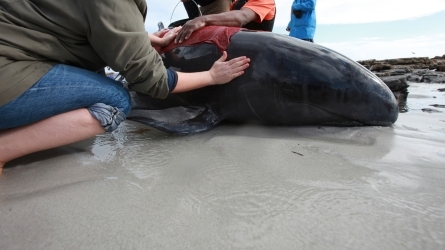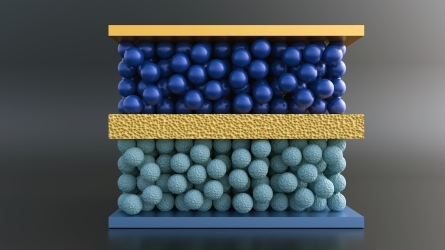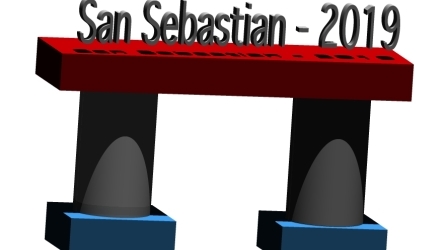
International conference on thermoelectric materials
Descripción
La forma ideal de energía es aquella que se puede almacenar, transportar, distribuir y utilizar, y a este respecto, la electricidad está muy cerca de ese ideal. La producción eléctrica actual se apoya en procesos físicos y químicos consolidados que tienen un impacto en el medioambiente debido a su abundante producción de gases de efecto invernadero, y además merman algunos de los recursos naturales no renovables. Mientras la búsqueda para reemplazar estos recursos sigue abierta y activa, deberíamos tratar de mejorar la situación mejorando a su vez los procesos de conversión de las formas menos refinadas de energía en electricidad. Una posible mejora se basa en el efecto termoeléctrico en el que un gradiente de temperatura entre partes del mismo dispositivo puede convertirse en electricidad. En este caso, el gradiente de temperatura se obtiene posiblemente mediante el calor residual del principal método de producción. Este proceso suele ser limpio en el sentido de que los dispositivos tienen un período de tiempo muy largo, ya que tanto los procesos químicos (idealmente) como las piezas móviles están ausentes. La búsqueda de una termoelectricidad altamente eficiente se ha beneficiado enormemente de los avances en nanotecnología –la conversión termoeléctrica está limitada por la dispersión y la difusión del calor y la electricidad–. De hecho, en términos físicos, se trata de un problema combinado y difícil de transporte eléctrico y térmico.
Esta búsqueda solo puede tener éxito si las comunidades experimental y teórica se reúnen, identifican los problemas comunes y comparten su experiencia en la búsqueda de soluciones. La producción de energía eficiente no solo es beneficiosa para nuestro planeta, sino que es la base de una importante expansión industrial, dado que muchas soluciones pueden aplicarse a diversos mercados.
Objetivos
Intercambiar teorías y materiales innovadores que ayuden a mejorar la eficiencia de la conversión termoeléctrica.
Reafirmar la presencia de la comunidad científica española en la vanguardia de las energías renovables en un futuro previsible. Construir una comunidad nacional sólida es fundamental para mejorar la posición de España en un ámbito con amplias aplicaciones científicas, tecnológicas e industriales.
Este pretende ser el primero de una serie de eventos que tienen como objetivo establecer una comunidad de trabajo en torno a la conversión de la energía termoeléctrica.
Pretendemos dar una oportunidad a jóvenes científicos y científicas para que puedan presentar sus logros junto a los de colegas con carreras consagradas.
Público objetivo al que está dirigida la actividad
- Alumnado universitario
- Profesionales
- Investigadores/as
Directoras/es
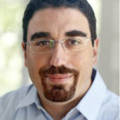
Roberto D'Agosta
UPV/EHU
Roberto D'Agosta is a Ikerbasque Research Professor in the Department of Materials Science of the University of the Basque Country in San Sebastian. A PhD in Physics from the University of Rome "Tre" and the degree in Physics from the University of Rome "La Sapienza", Roberto has spent 2 years at the University of Missouri - Columbia and 3 years at the University of California - San Diego before joining Ikerbasque. His research interest have spanned from cold atoms physics, to strong correlation to thermoelectric materials.
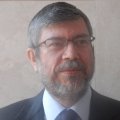
Andres Cantarero Saez
Universidad de Valencia, Institute of Molecular Science
Andres Cantarero studied in the University of Valencia, where he got a position of Assistant Professor during his Ph. D. After the postdoctoral stay at the Max Planck Institute of Solid State Physics (Stuttgart), he returned to Valencia, where he got a permanent position. He is now Full Prof. on Condensed Matter Physics. He has taught the last few years Classical Electrodynamics, Solid State Physics and Electricity and Magnetism, in the Physics Faculty, keeping a General Physics course in Electronic Engineer School. Most of his research has been devoted to studying semiconductor nanostructures (quantum wells, quantum dots, nanowires, etc.), working mainly with group IV or III-V compounds, paying attention, particularly, to their optical properties. He also has been working on theory, either in phenomenological models or DFT calculations. He has published over 320 papers in peer review journals and attended to 300-350 Conferences, where he presented mainly contributed or invited talks.
Ponentes

Nicolas Agrait Agrait
Universidad Autonoma de Madrid
Nicolás Agrait has been full professor in the Condensed Matter Physics Department of the Universidad Autonoma de Madrid (UAM) since 2007. He has developed state-of-the-art scanning probe techniques for studying transport in the nanoscale and performed pioneering studies of transport in nanocontacts, making relevant fundamental contributions to the understanding of quantum transport in nanometer-sized conductors, such as conductance quantization, the relation between chemical valence and quantum channels, and the discovery of the formation of single-atom atomic chains of which he also measured its mechanical properties and the inelastic scattering of electrons by the atomic vibrations. Presently, the activity of his group focuses in single-molecule molecular junctions and 2d crystals, with special emphasis in thermal transport and thermoelectric effects.

Davide Donadio ---
University of California
Davide Donadio is a theoretical materials scientist. He earned his Ph.D. in 2003 at the University of Milan, with a work that featured electronic structure calculations and molecular dynamics simulations of silicate glasses. He then moved to ETH Zurich (Prof. Parrinello’s group), where he studied materials at extreme conditions and crystal nucleation. In 2007 he joined Prof. Galli’s group at UC Davis and worked on nanoscale heat transport in thermoelectrics. From 2010 to 2015 he lead the Max Planck Research Group for “Theory of nanostructures” at the MPI for Polymer Research in Mainz (Germany), investigating non-equilibrium processes at the nanoscale by molecular simulations. In 2014 he was appointed Ikerbasque professor at DIPC (Donostia, Spain), and he then moved to UC Davis, where he continues his activity on crystallization, surface chemistry, and nanophononics. He has published 108 peer-reviewed articles and three book chapters.

Thomas Frederiksen
Donostia International Physics Center and Ikerbasque
Thomas Frederiksen (TF) obtained his PhD in physics in 2007 from the Technical University of Denmark on the topic of inelastic transport theory for nanoscale systems. In 2008 he was awarded a 5-year Gipuzkoa Fellowship to carry out research at the Donostia International Physics Center (DIPC) and abroad. In 2012 he was appointed Ikerbasque Research Professor at the DIPC where he leads a research group on Nanoelectronics. TF is one of the main developers of the DFT-NEGF code "Inelastica" to perform atomistic simulations of inelastic electron transport and local heating in nanoscale devices.
Woochul Kim
Yonsei University
Prof. Woochul Kim received his Ph.D. at U. C. Berkeley in 2005. He has been in Yonsei University since 2007. He was a consulting professor at LG Innotek and a principal investigator for the ‘National Leading Research Laboratory’ supported by the Korean government. He is the recipient of the Prime Minister’s Award in Nanotechnology Research Innovation in 2017, Young Thermal Engineer Award by Korean Society of Mechanical Engineers (KSME) in 2013, KSTP TPP Award in 2015 and KSTP Research Excellence Award in 2013 (Korean Society of Thermophysical Properties). His expertise is to manipulate thermal transport in materials by micro/nanostructures. Also, he has been working on thermoelectrics from materials aspect to device application for a couple of decades or so.
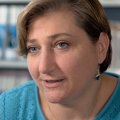
María Soledad Martín González
Instituto de Micro y Nanotecnologia (IMN) of the CSIC
Dr. Marisol Martin-Gonzalez is the head of the Functional Nanostructured Devices for Energy at the Institute of Micro and Nanotechnology –IMN-CSIC-. She holds a Ph.D. degree since 2000 working on electrodeposition of High-temperature Superconductors. Afterward, she did her postdoc at UC Berkeley on nanostructuration of thermoelectric materials by electrochemical techniques, where she obtained pioneer results. In 2003 she joined the Instituto de Microelectronica IMM-CSIC, where she worked on nanostructuration and characterizations in perpendicular magnetic recording, hard drives, and magnetic-semiconductors (Spintronics). Since 2007, she is a permanent researcher at CSIC and got an ERC Starting Grant, ERC POC, 2 European projects, 3 national projects as PI. She is the author of > 100 papers with more than 4000 citations. Regarding technology transference, she has the rights of 4 patents and is the managing partner and scientific consultant of a spin-off enterprise called AD-Particles.

Muhammet Toprak
KTH-Royal Institute of Technology
Muhammet Toprak received his BS in Chemistry Education from Middle East Technical University (METU, Ankara-Turkey) and his PhD in Materials Chemistry at KTH- Royal Institute of Technology (Stockholm-Sweden), specializing in inorganic materials chemistry and nanotechonology. He worked as a Post-doc at the University of California at Santa Barbara on biomimetic assembly routes for the fabrication of nanomaterials. He received the Docent title in 2009 and Professor in 2015 on Materials Chemistry. He is currently a staff member at the Department of Applied Physics KTH. Prof. Toprak's research and technical expertise focus on designing and developing novel nanomaterials architectures with desired characteristics; developing energy and resource effective synthesis methods as well as detailed microstructural, physicochemical, thermo-physical and transport characterisations. Currently his work is focusing on design, fabrication, characterisation and application to materials for energy.
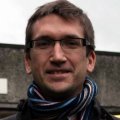
Matthieu Verstraete
University of Liege
Matthieu Verstraete is a Professor in the Department of Physics of the University of Liege in Belgium, since 2009. My group is part of the QMAT and CESAM research units, on the physics and chemistry of atomic to macroscopic materials. Our research focusses on the coupling of electrons, magnetism and phonons in condensed matter and nanostructures, in particular thermoelectricity, spin dynamics, and 2D materials. Since 2010 I have been a research team leader of the European Theoretical Spectroscopy Facility, and since 2012 the chairman of its Steering Committee. In 2016 I was elected Fellow of the American Physical Society, and in 2017 Member of the Young Academy of Europe. I have published more than 70 papers (h-index of 24, i-10 index 32), of which some very highly cited ones, in particular on first principles open source codes (abinit, octopus, BoltzTraP).
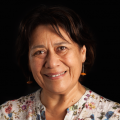
Clivia Sotomayor Torres
Institut Cátala de Nanosciencia y Nanotecnologia (ICN2) and ICCREA
Prof. Dr. Clivia M. Sotomayor Torres (www.icrea.cat/Web/ScientificStaff/clivia-marfa-sotomayor-torres-422 ) obtained her BSc. (Hons.) in Physics (U. Southampton) and her Dr. Phil. in Physics (U. Manchester) with a thesis on semiconductor physics. She has held tenured academic appointments at St Andrews, Glasgow, Wuppertal and at University College Cork. Since 2008 she is an ICREA Research Professor at the ICN2 where she leads the 17-strong Phononic and Photonic Nanostructures group (www.icn2-p2n.eu/). She was a Visiting Professor at KTH (2013-18). Her main research field is nanophononics, focusing on phonons in confined systems, thermal transport, optomechanics and topological phononics. Her research interest extend to nanofabrication and nanometrology. She works actively in several European projects and currently coordinates the FET Open project PhENOMEN on phonon circuits.
Precios matrícula
| Matrícula | Hasta 12-06-2019 |
|---|---|
| 90,00 EUR | |
| 0 EUR |
Lugar
Centro de Física de Materiales (CSIC-UPV/EHU)
Pº Manuel de Lardizabal, 4. 20018 Donostia / San Sebastián
Gipuzkoa
Centro de Física de Materiales (CSIC-UPV/EHU)
Pº Manuel de Lardizabal, 4. 20018 Donostia / San Sebastián
Gipuzkoa



